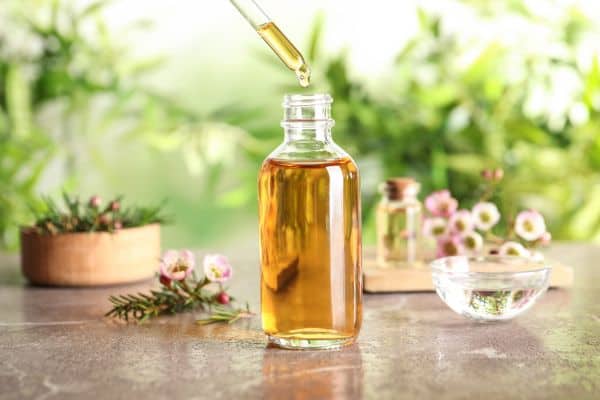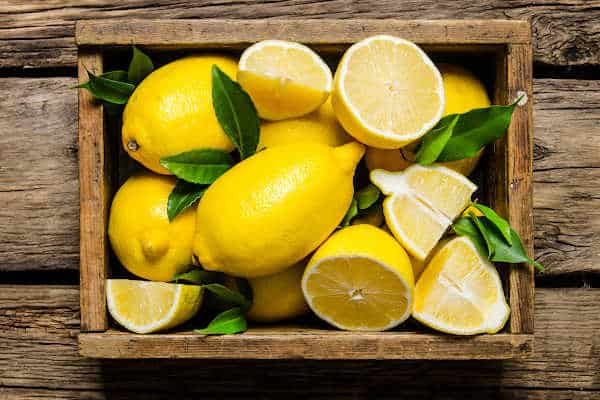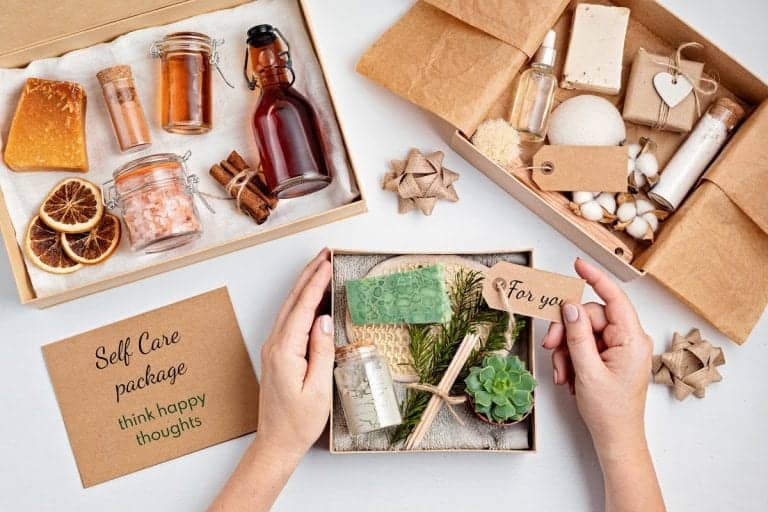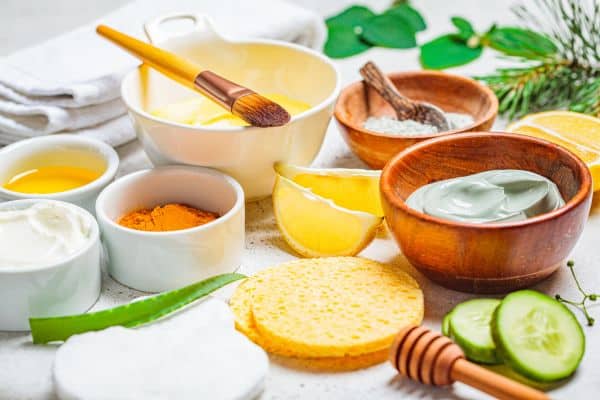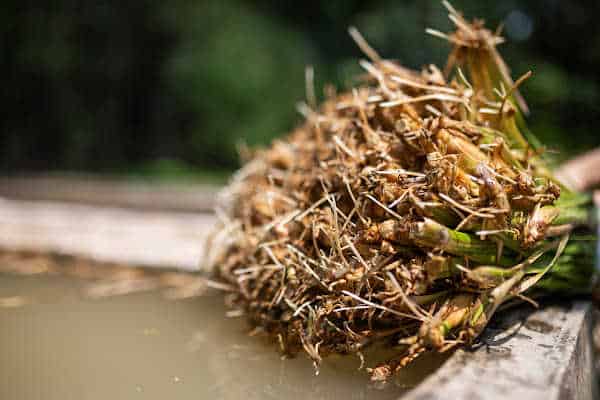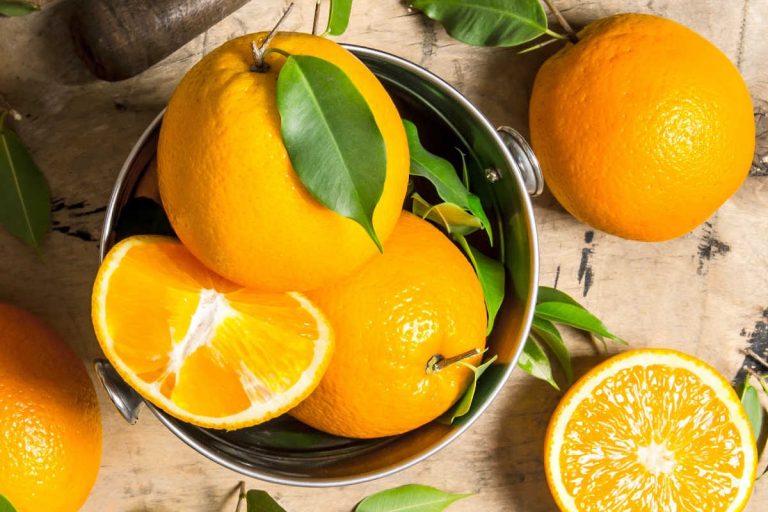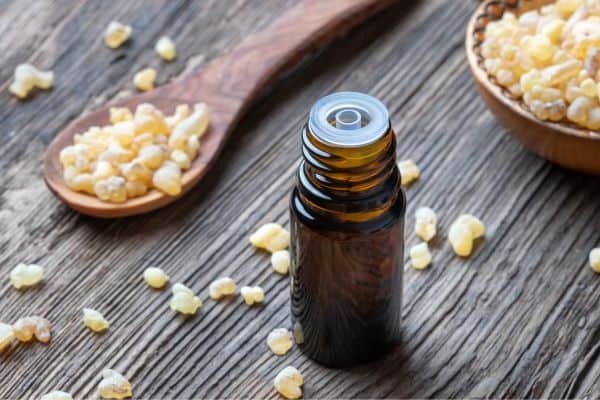If you’re seeking a solution to acne-prone skin that goes beyond surface-level treatments, you’re in the right place! In this guide, we’re diving deep into holistic skincare—a methodical approach that addresses the underlying causes of acne while nurturing your skin and overall well-being.
By understanding the factors that contribute to breakouts, from hormonal imbalances to environmental triggers, you’ll have valuable insights to tailor your skincare routine effectively. We’ll explore the role of nutrition, exercise, and mindfulness in promoting clear, radiant skin from the inside out.
Whether you’re a skincare aficionado or a business owner looking to empower your audience, this guide provides the tools and resources you need to embark on a holistic skincare journey!

This post may contain affiliate links, meaning I get a commission if you decide to make a purchase through my links (at no cost to you). Please read the disclosure for more information.
What is Acne-Prone Skin?
Acne-prone skin refers to a skin type that is more susceptible to the formation of pimples, blackheads, whiteheads, and sometimes cysts.
Acne occurs when hair follicles become clogged with oil (sebum) and dead skin cells, leading to the growth of bacteria and subsequent inflammation.
This can lead to the following symptoms:
- Pimples: Small red bumps on the skin, often filled with pus.
- Blackheads: Small dark spots on the skin’s surface due to the oxidation of trapped oil and dead skin cells.
- Whiteheads: Similar to blackheads but covered by a thin layer of skin, resulting in a white or flesh-colored bump.
- Cysts: Large, painful, pus-filled lumps beneath the skin, often deep-seated and prone to scarring.
- Inflammation: Redness, swelling, and tenderness in the affected areas.
- Scarring: After severe acne lesions heal, they may leave behind scars, which can be raised (hypertrophic scars) or depressed (atrophic scars).

What Causes Acne-Prone Skin?
Several factors contribute to the development of acne-prone skin:
Acne-Prone Skin Cause #1: Excess Oil Production
Overproduction of oil (sebum) can clog hair follicles and contribute to the development of acne. This type of acne is more common in younger individuals.
Acne-Prone Skin Cause #2: Dead Skin Cells
When dead skin cells do not shed properly, they can accumulate and mix with sebum, leading to pore blockages. This type of acne is more common in adults.
Acne-Prone Skin Cause #3: Bacteria
The presence of certain bacteria on the skin, particularly Propionibacterium acnes, can contribute to the inflammatory response associated with acne.
Acne-Prone Skin Cause #4: Hormones
Hormonal changes, especially during puberty, menstruation, pregnancy, or when using hormonal contraceptives, can influence sebum production and contribute to acne.
Acne-Prone Skin Cause #5: Genetics
A family history of acne may increase the likelihood of developing acne-prone skin.
Acne-Prone Skin Cause #5: Diet and Lifestyle
Certain dietary factors and lifestyle choices, such as a high glycemic index diet, stress, and the use of certain cosmetics or skincare products, can influence acne development.
In this skincare guide, we’ll explore a comprehensive acne-prone skin regimen that not only focuses on external treatments but also delves into the internal factors that contribute to your skin’s health and appearance.

What is Holistic Skincare?
Welcome to a journey of self-care that goes BEYOND the surface!
And, if you’re anything like me, get ready to be obsessed with thinking about how EVERYTHING we do impacts the skin we’re in!
Acne-prone skin can be a signal from your body that it’s time to reevaluate your skincare routine and embrace a holistic approach to nourishing your skin.
The definition of ‘holistic’ is to think about the WHOLE person rather than just the symptom; holistic skincare considers every detail of the daily experience of an individual to benefit their skin’s health from the inside out.
This is all about understanding that everything in your body, mind, and environment is connected and impacts your overall health and wellness (which directly impacts the skin’s appearance).
Holistic skincare goes far beyond just using the ‘right’ type of product for your skin, and includes all of the following for a well-rounded skincare regimen:
- Plant-based skincare products
- Proper hydration
- Regular exercise
- A Whole Food diet
- Deep sleep
- Stress management
- Mindfulness practice
If you’d like additional background information before moving ahead, view this holistic skincare blog post or download the following PDF guide:
Best Natural Ingredients for Acne-Prone Skin
Plant-based skin care products are best for overall wellness, as they are easy on the immune system and have a far lower risk of creating or exacerbating allergies.
If you are a DIY skin care maker (and even a handmade business owner), use the suggested ingredients below for amazing, chemical-free formulations for acne-prone skin.
If you are not a maker, read the labels of the acne skin care products you are purchasing and aim for items that include many of the essential oils and carriers listed below.
Cedarwood Essential Oil
Cedarwood essential oil(Juniperus virginiana) is an astringent and has antiseptic qualities, especially useful for acne and for healing superficial lesions.
Clary Sage Essential Oil
Clary Sage essential oil (Salvia sclarea) is a great choice in anti-acne blends due to antibacterial and anti-inflammatory actions.
Eucalyptus Essential Oil
Eucalyptus essential oil (Eucalyptus globulus) can decrease sebum production by reducing gland size and is active against Propionibacterium acnes (the bacteria that causes acne).
Jasmine Absolute
Jasmine absolute (Jasminum grandiflorum) is often used for sun-damaged skin and acne, and is also active against Propionibacterium acnes (the bacteria linked to acne).
Juniper Berry Essential Oil
Juniper Berry essential oil (Juniperus communis) has great results in treating acne, helping to clean and heal infected areas.
Lemon Essential Oil
Lemon essential oil (Citrus limon) is antibacterial and anti-inflammatory, which is particularly useful for acne and blemishes.
Lemongrass Essential Oil
Lemongrass essential oil (Cymbopogon citratus) has the potential to manage acne and skin infections.
Rose Absolute
Rose absolute (Rosa x damascene) can inhibit the acne-causing bacteria Proprionibacterium acnes, and is also useful for regeneration and healing.
Rosemary Essential Oil
Rosemary essential oil (Rosmarinus officinalis ct. 1,8 cineole) is antibacterial and active against Propionibacterium acnes and is an astringent, helping to regulate or decrease oily secretions of the hair follicles.
Tea Tree Essential Oil
Tea Tree essential oil (Melaleuca alternifolia) has excellent potential in the treatment of acne, reducing the number of lesions and being active against Propionibacterium acnes.
Vetiver Essential Oil
Vetiver essential oil (Vetiveria zizanioides) is used to treat eczema and acne, though is it excellent for skincare on all types of skin.
Argan Oil
Argan Oil (Argania spinosa) is a light and easily absorbed carrier that helps to tighten pores and increase skin elasticity.
Jojoba Oil
Jojoba Oil (Simmondsia chinensis) is quickly and easily absorbed, nongreasy and non-allergenic with anti-inflammatory properties.
Rosehip Seed Oil
Rosehip Seed Oil (Rosa rubiginosa) is deeply moisturizing without leaving a greasy residue and is a popular oil for age spots and acne scarring.
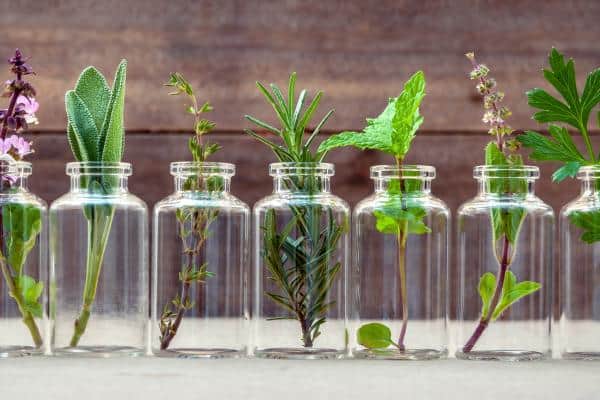
Holistic Skincare Regimen for Acne-Prone Skin: Best Foods (with Recipe Ideas)
Acne-Prone Skin Food #1: Fatty Fish
Fatty fish like salmon and mackerel are rich in omega-3 fatty acids, which help reduce inflammation in the body, including the inflammation associated with acne.
These specific types of fish contain vitamin D, which plays a role in regulating skin cell growth and may help prevent clogged pores.
Recipe Idea: Tilapia Fish Tacos
Acne-Prone Skin Food #2: Avocado
Avocados are rich in vitamin E, which helps to nourish and moisturize the skin, reducing dryness and preventing clogged pores.
The oleic acid in avocados can soothe inflammation, potentially reducing acne flare-ups.
Recipe Idea: Creamy Cilantro-Avocado Dressing
Acne-Prone Skin Food #3: Chia/Flaxseeds
Chia and flaxseeds are rich in omega-3 fatty acids, which have anti-inflammatory properties that can help reduce inflammation associated with acne.
These seeds also contain lignans, which may help balance hormone levels, potentially reducing the likelihood of hormonal acne outbreaks.
Recipe Idea: Chia and Flax Seed Crackers
Acne-Prone Skin Food #4: Walnuts
Walnuts are rich in omega-3 fatty acids, which can help reduce inflammation associated with acne.
Walnuts also contain zinc, which plays a role in regulating oil production in the skin, potentially reducing the occurrence of breakouts.
Recipe Idea: Pear Waldorf Pitas
Acne-Prone Skin Food #5: Yogurt/Kefir/Kimichi
Yogurt, kefir, and kimchi are beneficial for acne-prone skin due to their probiotic content, which helps balance the gut microbiome and may reduce inflammation associated with acne.
Additionally, these foods contain nutrients like zinc and vitamin C, which support skin health and may contribute to a clearer complexion.
Recipe Idea: Protein Pumpkin Mac and Cheese
Acne-Prone Skin Food #6: Blueberries
Blueberries are rich in antioxidants like vitamin C and anthocyanins, which help combat inflammation and neutralize free radicals that can exacerbate acne.
The high fiber content of blueberries aids in regulating blood sugar levels, potentially reducing breakouts associated with insulin spikes.
Recipe Idea: Breakfast Blueberry-Oatmeal Cakes
Acne-Prone Skin Food #7: Leafy Greens
Leafy greens are rich in vitamins A and C, which can help regulate oil production and reduce inflammation in the skin, potentially decreasing acne breakouts.
Their high fiber content aids in detoxification and promotes a healthy digestive system, which can indirectly contribute to clearer skin.
Recipe Idea: Avocado Breakfast Skillets with Microgreens
Acne-Prone Skin Food #8: Carrots
Carrots are beneficial for acne-prone skin due to their high content of beta-carotene, which is converted into vitamin A in the body, helping to reduce inflammation and regulate sebum production.
Additionally, carrots are rich in antioxidants that can help combat free radicals and promote skin health, potentially reducing acne breakouts.
Recipe Idea: Instant Pot Cream of Carrot Soup
Acne-Prone Skin Food #9: Lentils/Chickpeas
Lentils and chickpeas are good for acne-prone skin due to their high zinc content, which helps regulate oil production and reduce inflammation, contributing to clearer skin complexion.
The fiber from lentils and chickpeas promotes gut health and toxin elimination, which can indirectly impact skin health.
Recipe Idea: Chickpea Noodle Soup
Acne-Prone Skin Food #10: Quinoa, Brown Rice
Quinoa and brown rice are good for acne-prone skin because they have a low glycemic index, which helps regulate blood sugar levels and reduces the likelihood of insulin spikes, known to aggravate acne.
These grains contain vitamins, minerals, and antioxidants that support overall skin health and may help alleviate inflammation associated with acne.
Recipe Idea: Goddess Bowls

Holistic Skincare Regimen for Acne-Prone Skin: Foods to Avoid
It is also important to note that certain foods may exacerbate acne in some individuals.
Some (not all) people find improvements by avoiding:
- High-glycemic foods (refined carbohydrates and sugary foods)
- Dairy products
- Processed foods (foods high in trans fats and refined sugars)

Holistic Skincare Regimen for Acne-Prone Skin: Daily Routine
- Cleanser (non-comedogenic)
- In the morning and the evening, use an oil-based cleanser to gently wash away any impurities and dead skin cells.
- Toner
- Spray a gentle toner over a cleansed face two times a day.
- Tea Tree Hydrosol is a recommended toner for blemish-prone skin.
- Moisturizer
- A plant-based, 100% oil facial serum is recommended in place of water-based creams.
- Always apply face serum at night, and in the morning if possible with your ‘get out the door’ routine (it needs a bit to soak in before applying makeup).
- If you are a DIY skin care maker, check out this adult acne skin face serum recipe that is easy enough for beginners (yet produces amazing results!)
- For an all-over body moisturizer, there is nothing better than plain jojoba oil.
- Hydrate
- Men: 13 cups (~3 liters) of water a day
- Women: 9 cups (~2+ liters) a day
- Exercise (Cleanse skin after)
- The amount of exercise recommended varies widely based on age and health conditions.
- The average adult (ages 18-64) needs 150-300 minutes of moderate-intensity aerobic physical activity (this is just to provide a frame of reference to start with).
- Visit the World Health Organization here for more info.
- Healthy Meals (Limit Sugar)
- Eating for wellness also impacts the health and appearance of the skin greatly. Try adding one new recipe a week that is specific to acne-prone skin (see recommendations in the above section).
- Mindfulness Practice
- The goal of mindfulness is to achieve focused relaxation while paying attention to thoughts and sensations and being fully present.
- This can be achieved through meditation, gratitude practice, belly breathing, mindful walking, body scans, and more.
- Get Fresh Air
- Fresh outside air has tons of positive impacts on overall health (and most individuals aren’t getting close to enough of it).
- Breathing fresh air increases oxygen in the blood, increases energy, improves digestion, cleans the lungs, relieves stress and anxiety, improves cell function, and improves cognitive abilities…to name just a few benefits (and all of these impact the skin’s glow)!
- Makeup Remover
- If you’re washing your face with an oil-based cleanser as mentioned in the first step, you don’t need another product – this should do the trick for most makeup.
- For some waterproof makeup that is a bit more stubborn, grab some reusable makeup remover pads.
- Under-Eye Salve
- Apply under-eye salve at night (after cleansing, spraying toner, and applying face serum)
- If you are a DIYer, try this handmade under-eye salve recipe
- No Screen Time Before Bed
- Sleep experts recommend cutting off screen time an hour before bed (or two hours for the best benefits…time to bust out that library card!)
- 8+ Hours of Sleep
- It’s called ‘beauty sleep’ for a reason, as deep sleep (slow-wave sleep) stimulates cell turnover and collagen production.
- Deep sleep reduces inflammation and combats issues, such as eczema and acne, and is essential for memory, mood regulation, brain health, and immune function.
- Wash Bedding Frequently
- Wash all bedding (and most definitely pillowcases) at least once a week. Bedding harbors larger quantities of bacteria.
Holistic Skincare Regimen for Acne-Prone Skin: More Lifestyle Tips
Acne-Prone Skin Tip #1: Cleanse Gently
Use a mild, non-comedogenic cleanser twice daily to remove dirt, oil, and makeup without stripping the skin.
Acne-Prone Skin Tip #2: Avoid Harsh Scrubs
Skip abrasive scrubs or cleansing brushes which can irritate acne-prone skin and worsen inflammation.
Acne-Prone Skin Tip #3: Diet
Maintain a balanced diet with plenty of fruits, vegetables, and whole grains. Limit intake of sugary and processed foods, which contribute to inflammation.
Acne-Prone Skin Tip #4: Hydration
Stay hydrated by drinking enough water throughout the day to help flush out toxins.
Acne-Prone Skin Tip #5: Hands Off
Avoid touching your face to prevent the transfer of bacteria and irritants from your hands.
Resist the temptation to pick, squeeze, or pop pimples, as it can worsen inflammation and lead to scarring.
Acne-Prone Skin Tip #6: Cosmetics
Choose makeup labeled as non-comedogenic to prevent pore clogging.
Remove makeup before bedtime to allow your skin to breathe and regenerate overnight.
Acne-Prone Skin Tip #7: Bedding
Opt for soft and breathable bedding fabrics to prevent overheating and reduce irritation. Cotton or bamboo sheet sets such as this are great places to start.
Change your pillowcases and sheets regularly to reduce the buildup of oil, dirt, and bacteria.

Holistic Skincare Education for Handmade Business Owners
Great news for my fellow skin care business owners!
We both know that our customers can benefit HUGELY from this information because I can tell you right now, that this holistic approach is not being discussed in a typical doctor’s office (yet…but WE are the change-makers!).
Here at DIY Skin Care Business, my goal is for us as educated business owners to be the bridge between skin care *just* being skin care, to it being a SHIFT in our audiences’ overall health and wellness.
I’ve made it INCREDIBLY easy for you to share all of the information above in a bundle of completely editable templates that you can tweak to your liking (or simply just pop in your business name, URL, and you’re done)!
Include the holistic skincare 101 in customer shipments, on your website, sell as printables, or hand out at markets…however it makes sense for you and your brand.
Click below for more information on the templates and start spreading the news about holistic skincare benefits for total mind and body wellness!
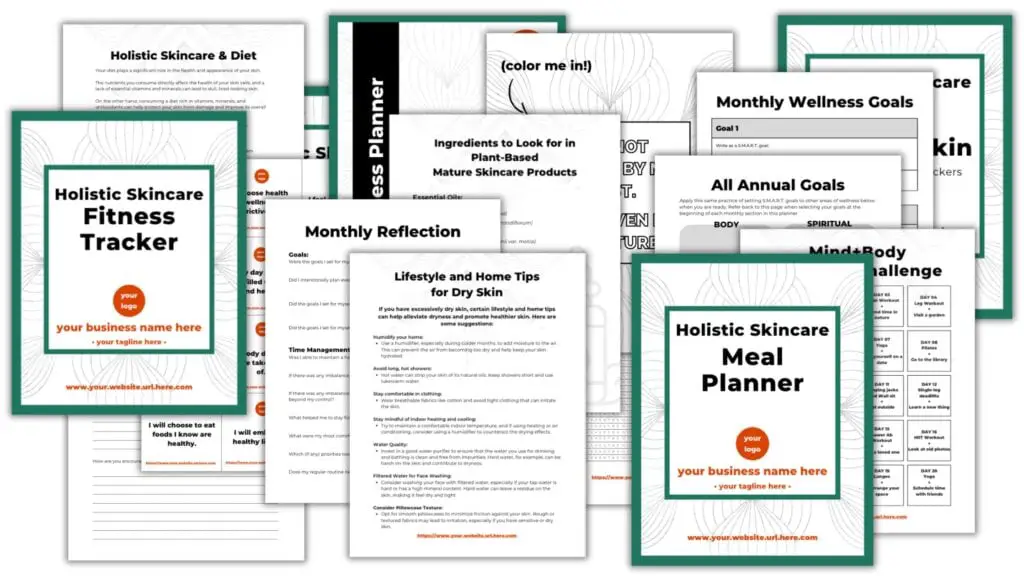
Grow Your Skin Care Business!
Browse through the resources below to boost your handmade business visibility and profitability!


